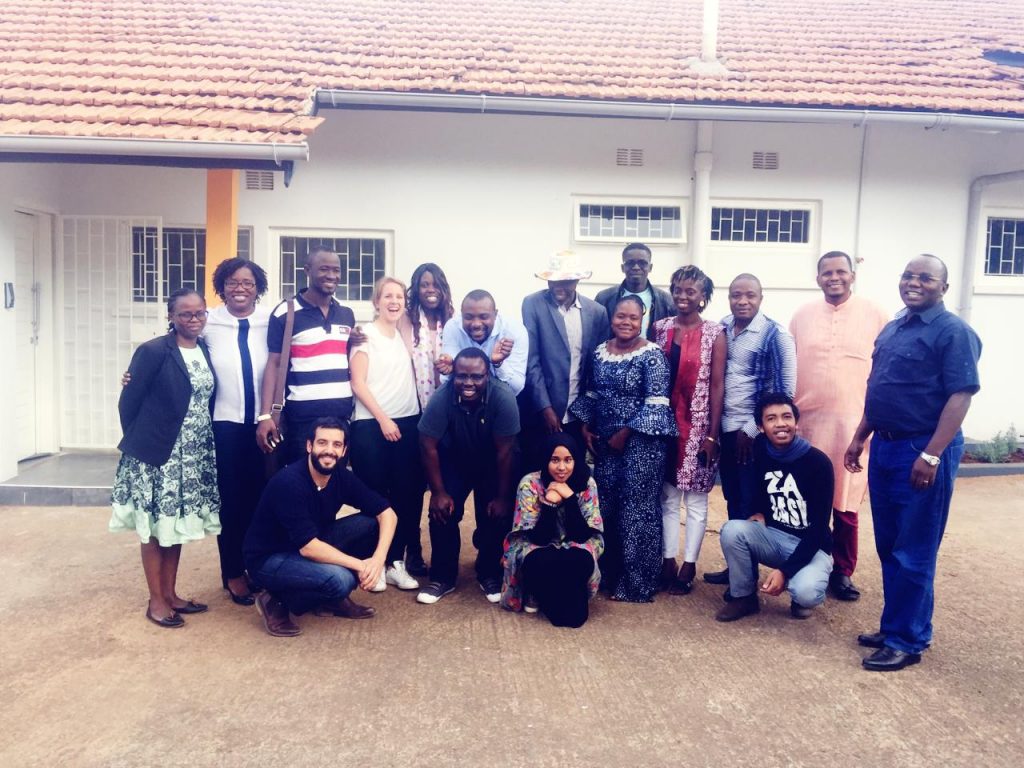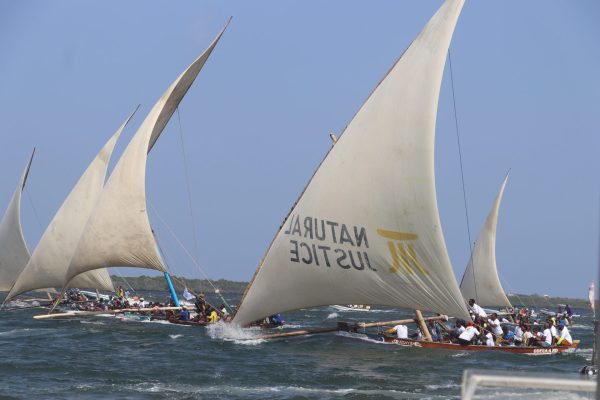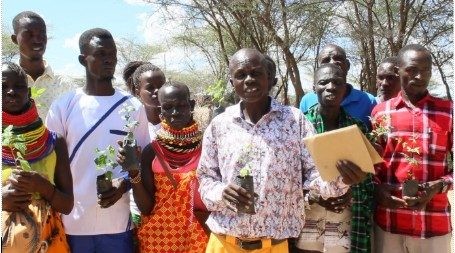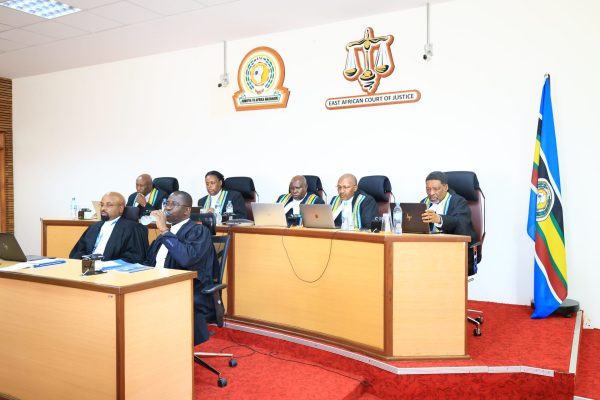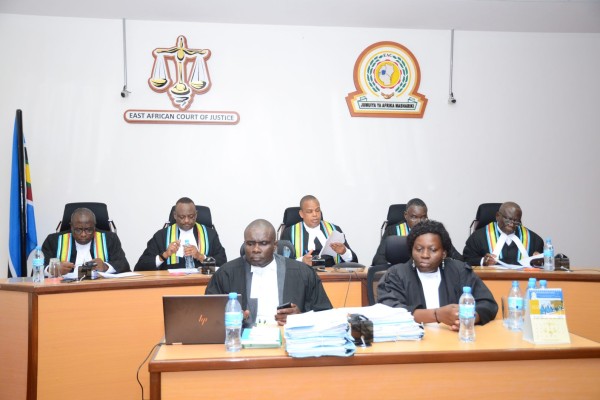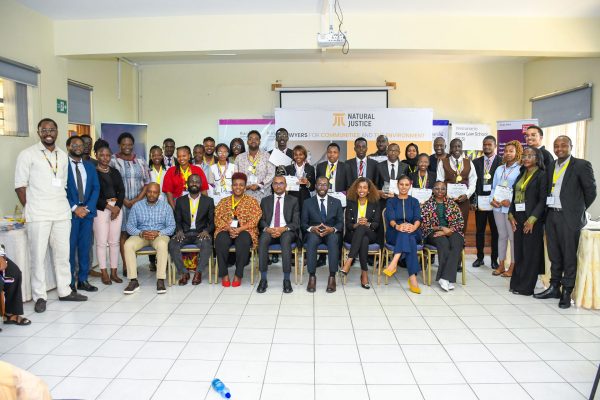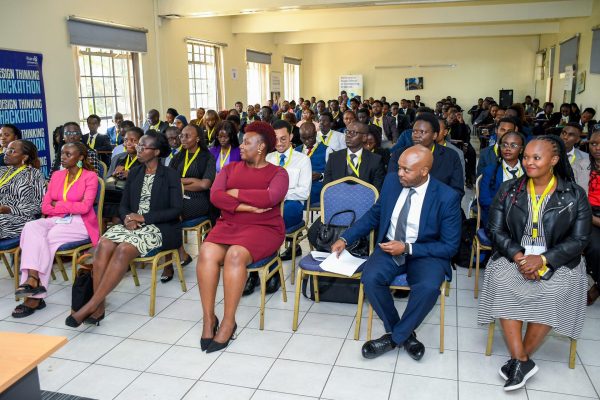What would bring two Kenyans, two Guineans, one Senegalese, one Malagasy and one Swiss together to the coastal region around Malindi?
On a Tuesday morning in July 2019, at the Malindi Airport, Justus Tsofa waits smiling from ear-to-ear for his guests. He is excited about his mission for the following days. Justus will be taking his guests, who come from other parts of Africa, to remote places where they can appreciate the beautiful landscape and be able to ask many questions about the region and the people living there.
After a few hours of driving, he introduces them to the local people and they find themselves sitting on a veranda with representatives of the community. The Kenyans communicate in Kigiryama, translated to Swahili, then to English and finally to French, so that everyone can understand what is reported. The topic of the discussion: the Boyani Kokotoni Limestone Quarry and the Salt Mines.
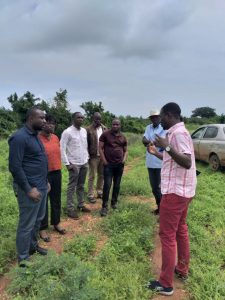
On the field visits, the guests, who are eager to learn from other countries, hear about the consequences of the exploitation of the natural resources on the local community. There is a close and trustful relation between Justus and the locals. Justus is a paralegal of Natural Justice, which means he works on-site with the local communities. The visitors themselves are either working for Natural Justice or in a partner organisation challenging mining.
They are able to learn more about the contexts and strategies of project-affected people to claim their rights. The two Kenyans explain the concept of an environmental legal officer or paralegal supporting and assisting the communities. The understanding of the Environmental Impact Assessment process and its public participation plays a crucial role in the work of a paralegal. Also, it is important to know which institution or authority is responsible for which request to effectively get access to information, to complain or to claim their rights.
At the end of the day, the two Kenyans, two Guineans, one Senegalese, one Malagasy and one Swiss are back in Malindi sitting at the table. They are able to continue to ask questions, seeking to understand the work of a paralegal and exchange experiences about the projects they are working on. In conversation, the group is able to identify numerous differences and find some similarities of working in different African countries. They find it striking how similar the problems are in the respective countries.
Back in Nairobi, the paralegal exchange is concluded with a final exchange. The Malindi team meets the guests, who have been visiting Lamu County. The Lamu team have had a similar experience, learning about the paralegal work in infrastructure projects, including the port project, the coal plant, and the Lamu Port, South Sudan, Ethiopia Transport (LAPSSET) corridor. The guests from Senegal, Guinee, and Madagascar talk about their expectations of this visit, exchange the lessons learned and ask their remaining questions. For the host of this event, Natural Justice Kenya, it is important that all questions are answered. The hope is that the lessons learned are taken home and put into practice on their projects.
After four days of intense exchange, the participants have learned from each other and are going home with more knowledge in their luggage. The participants are ready to share the success stories of each other to keep the flame of commitment for the environment and human rights burning.
Sabrina Nick is an International Fellow working in the Kenyan Hub.
Valoriser les similitudes dans les perspectives des paralégales
Qu’est-ce qui ferront deux kenyans, deux guinéens, un sénégalais, un malgache et une suisse dans la région côtière autour de Malindi?
Un mardi matin à l’aéroport de Malindi en Juillet 2019, Justus Tsofa attend ses invités son sourire s’étendant d’une oreille à l’autre. Il est enthousiasmé par sa mission des prochains jours. Justus emmenait leurs invités, qui viennent d’autres parties de l’Afrique, dans des endroits éloignés. Les invités apprécient la beauté du paysage et posent de nombreuses questions sur la région et les gens qui y vivent. Après quelques heures de route, il les présente aux gens locaux et se retrouvent assis dans une véranda avec les représentants de la communauté. Les kenyans communiquaient en kigiryama, traduit en swahili, ensuite en anglais et enfin en français afin que chacun puisse comprendre ce qui est rapporté. Le sujet de la discussion: la carrière de calcaire de Boyani Kokotoni et les mines de sel.
Lors des visites sur le terrain, les invités, qui sont enthousiastes à l’idée d’apprendre des autres pays, prennent connaissance des conséquences de l’exploitation des ressources naturelles sur la communauté locale. Ils constatent la relation proche et de confiance entre Justus et la population locale. Justus est un parajuriste de Natural Justice, ce qui signifie qu’il travaille sur place avec les communautés locales. Quand aux invités, soit ils travaillent pour Natural Justice, soit dans une organization partenaire contestant les activités minières.
Ils apprennent plus sur les contextes et les stratégies des personnes affectées par le projet pour revendiquer leurs droit. Les deux kenyans expliquent le concept d’un officier juridique en environnement ou d’un parajuriste qui soutient et assiste les communautés. La compréhension du processus de l’étude d’impact environnemental et la participation publique que ce procès implique jouent un rôle crucial dans le travail d’un parajuriste. En outre, il est important de savoir quelle institution ou autorité est responsable d’une demande d’accès à l’information, de plainte ou revendication de ses droits.
À la fin de la journée, les deux kenyans, les deux guinéens, le sénégalais, le malgache et la suisse sont de retour à Malindi. Assis autour la table, ils continuent de poser des questions, cherchent à comprendre le travail d’un parajuriste et échangent leurs expériences sur les projets sur lesquels ils travaillent. Au cours de la conversation, le groupe identifie des nombreuses différences et parvient à trouver quelques similarités dans le travail dans différents pays africains. Ils trouvent frappant à quel point les problèmes sont similaire dans leurs pays africains respectifs.
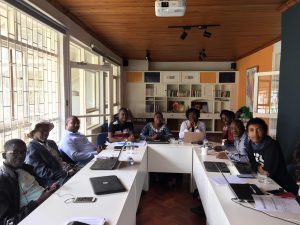
De retour à Nairobi, l’échange parajuridique se clôt par un échange final. L’équipe de Malindi rencontre les invités qui ont visité Lamu County. L’équipe de Lamu a vécu une expérience similaire, en se familiarisant avec le travail d’un parajuriste dans le cadre de projets d’infrastructure, notamment le projet du port de Lamu, de la centrale au charbon et du Lamu Port, South Sudan, Ethiopia Transport (LAPSSET) corridor. Les invités du Sénégal, de la guinée et de Madagascar parlent de leurs attentes par rapport à cette visite, échangent les leçons apprises et posent leurs questions. Pour l’hôte de cet événement, Natural Justice Kenya, il est important qu’il n’y ait plus de questions. On espère que les leçons apprises seront mise en pratique dans leurs projets.
Après quatre jours d’échange intense, les participants ont appris les uns des autres et rentrent chez eux avec plus de connaissances dans leurs bagages. Les participants sont prêts à partager les réussites des uns et des autres pour que la flamme de l’engagement pour l’environnement et les droit de l’homme reste allumée.

